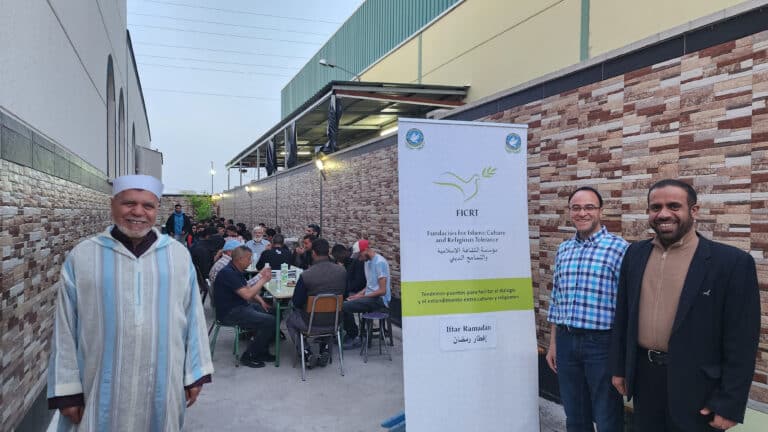“Religions must advocate for peace, and in order to achieve peace, religious freedom and peace agreements must be respected”. The First Cordoba Forum ‘From Islam-Christian Dialogue to the Abrahamic Family,’ held on May 16 and 17 at Casa rabe’s headquarters, opened its doors with this message from Jumaa Alkaabi, president of the FICRT Foundation. It was coordinated by Professor Mohammed Dahiri, with the assistance of the University of Cordoba’s Unesco Chair of Conflict Resolution and the Complutense University’s University Institute of Religious Sciences.
The objectives of the forum, according to FICRT president Jumaa AlKaabi, are the same as those of the Foundation: tolerance, future coexistence, and fraternity. “We want to spread peace and harmony on a global scale and achieve progress among peoples, religions, and cultures”, he stated. He also advocated cooperation to open up channels of communication and cultural diplomacy to end “the scourge of sectarianism and violence”.
Respect for civic foundations, defence of peace culture, acceptance of the other, love among peoples, and coexistence in cultural and religious environments were some of the lines of work that Jumaa AlKaabi defended on the path of tolerance and interreligious dialogue.
Cintia Bustos, Cordoba City Councilor for Youth, also attended the opening ceremonyand welcomed the city’s “union of culture and different religions”. On behalf of the youth,he expressed gratitude for the celebration of these meetings that discuss other religions and seek to enrich and live in peace. “Thank you for caring about nations’ present and future”, he concluded.
Juan Antonio Álvarez-Pedrosa, director of the Complutense University’s University Institute of Religious Sciences, alluded to the study of religions in the university setting and the need for dialogue, which implies “mutual respect, the ability to listen to others, and the openness to understand them”.
Professor Álvarez-Pedrosa emphasised that those studying interreligious dialogue want to show that “things can be different and that intolerance cannot have the last word”. According to the professor, dialogue entails the exchange of ideas between religions as well as learning “from each other”.
Those were the words of Fernando López Mora, deputy director of the Unesco Chair in Conflict Resolution at the University of Cordoba.He emphasised the importance of participation and understanding, particularly in this geopolitical world, and praised the Forum’s convening with the participation of great specialists “which places Cordoba in a very unique position in this type of dynamization”..







